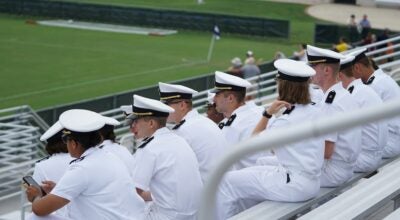University of Mississippi student claims service dog banned
Published 10:30 am Sunday, September 16, 2018
The University of Mississippi is reviewing a report after a student claimed her service dog was banned from a classroom last week.
The student, who wished to remain anonymous because of her condition, is an Ole Miss freshman who said she relies on her chocolate lab, Violet, for comfort, the Clarion Ledger reported.
According to the student, University personnel to her Violet was unwelcome in a classroom due to “whining excessively” and roaming about the classroom. However, she disputes those claims. Jeff McCall, the dog’s trainer, told the Clarion Ledger he doesn’t believe it, either.
“I’m not opposed to the possibility the dog may have been a disruption, but the way they are handling this leaves a lot to be desired,” McCall said. “I would have figured they’d be interested in accommodating disabled students; this seems very disciplinarian, especially for someone who suffers from PTSD.”
Post-traumatic stress disorder occurs following the experience or witness of a frightening, distressing or traumatic event.
According to the University’s Animal Assistance policy, the university may restrict or exclude an assistance animal if it is out of control and effective action cannot control it or is not taken to control it; its size is prohibitive in relation to the size of a residence hall; it is not housebroken
It poses a direct threat to the health or safety of others that cannot be reduced or eliminated by reasonable modifications (such as biting or aggressive behavior) or its presence fundamentally alters the nature of programs, services, or activities in student housing.
“The University of Mississippi recognizes the importance of service animals to individuals with disabilities, and we welcome trained service animals on our campus as a reasonable accommodation,” a statement from the University’s Office of the Vice Chancellor for University Relations said. “While federal law prohibits us from commenting on a specific student’s accommodations, we view the matters described in the Clarion-Ledger story seriously and are taking a closer look at them.”





